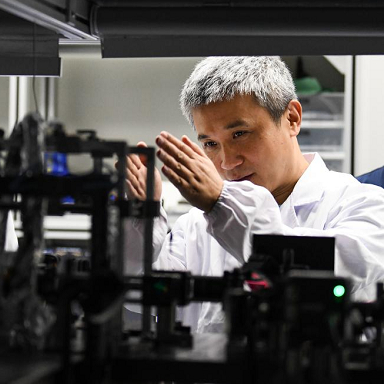Beijing, Shanghai, Hefei slated for science, innovation hubs
China will turn Beijing, Shanghai, and Hefei in East China's Anhui province into world-class science and innovation hubs in the future, an official with the Chinese Academy of Sciences said on Monday.
In recent years, CAS has seen a rapid surge in major scientific output, and China has taken the front ranks of the world in certain key scientific fields, Bai Chunli, the president of the academy, in a recent interview with China Central Television.
Such scientific achievements included the world's most powerful pulse laser, the world's first cloned monkey using somatic cells, the world's first 10,000-meter deep ocean seismic profile, and the world's deepest diving underwater glider, breaking the previous record of 6,000 meters by more than 300 meters.
Many of the centers and top universities involved in these breakthroughs are located in Beijing and Shanghai, as well as in Hefei, where the University of Science and Technology of China and the state-lab for quantum information technology are located.
"The academy will fully support turning these three cities not only into national level science centers, but also world-class research hubs with Chinese characteristics," said Gao Hongjun, the director of the academy's Bureau of Frontier Science and Education.
To strengthen China's momentum in scientific development, the bureau will continue to support frontier pilot projects to create original scientific breakthroughs, said Gao.
At the same time, China will build more innovation research centers and state sponsored labs for cutting-edge science fields, and train more top talents to tackle major scientific challenges in the world, he added.
The academy currently has 18 major pilot projects in advanced scientific fields, with five completed last year. They are quantum communication, brain science and intelligence technology, geology of the Qinghai-Tibetan Plateau, superconducting electronics, and smog tracking mechanisms and technologies.
China also has finished building 14 of its 19 planned innovation research centers, also known as Centers for Excellence, said Gao. They include fields such as particle physics, molecular science, brain science, quantum information science and other advanced science fields.
These centers are world-class institutions in their respective fields, according to Nature Index, a research capability tracking database.
"These centers truly are pushing the envelope of science and are the energy source for China’s innovative and original science works," Gao said.
Ding Hong, the chief scientist at the Beijing National Laboratory of Condensed Matter Physics, said the development of human civilization is based on our understanding of the material world.
"For the past decade, China has consistently supported basic scientific research," he said. "It allows China to join the international science community and play a contributing role in answering some of the world's greatest mysteries.”






